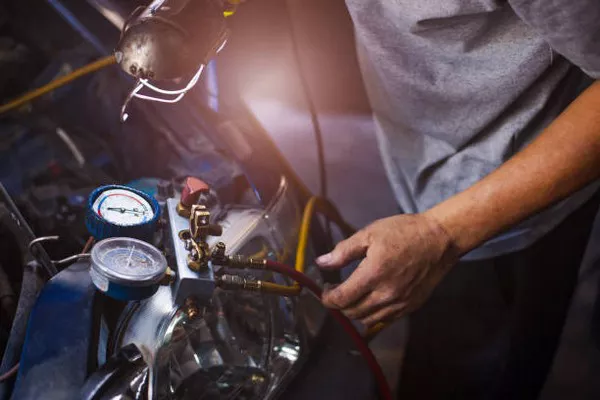The refrigerator is an indispensable appliance in any modern kitchen, and its compressor plays a crucial role in keeping your food fresh and cool. If you’re facing issues with your LG refrigerator compressor, you might be wondering about the cost involved in repairing or replacing it. In this article, we will delve into the factors that influence the cost of an LG refrigerator compressor, discuss considerations for making an informed decision, and explore alternative solutions to help you make the best choice for your specific situation.
Understanding the LG Refrigerator Compressor
Before we dive into the cost aspects, let’s briefly understand what a refrigerator compressor is and its vital role in keeping your food cold and fresh. The compressor is the heart of a refrigerator’s cooling system. It circulates refrigerant, which absorbs heat from inside the fridge and releases it outside, ensuring a consistently low temperature inside the refrigerator.
Factors Affecting the Cost of an LG Refrigerator Compressor
Type of Compressor:
LG refrigerators come with different types of compressors. The two most common types are the linear compressor and the traditional reciprocating compressor. Linear compressors are known for their energy efficiency and quieter operation, but they can be more expensive to replace. Traditional reciprocating compressors are often more affordable, but they are less energy-efficient.
Model and Age of the Refrigerator:
The cost of a compressor replacement can vary based on the specific LG refrigerator model you own and its age. Newer models might use more advanced, and often more expensive, compressor technology. Older models, on the other hand, might be more affordable to repair due to the availability of compatible parts.
Warranty Coverage:
The warranty on your LG refrigerator can significantly impact the cost of compressor repair or replacement. If your refrigerator is still under warranty, LG may cover the cost of parts and labor, which can save you a substantial amount. Be sure to check the terms and conditions of your warranty to understand what is covered.
Labor Costs:
The cost of labor for replacing a compressor can vary depending on your location and the service provider you choose. Labor costs may also be influenced by the complexity of the repair or replacement and the time it takes to complete the job.
Additional Parts and Services:
Sometimes, a compressor replacement may require additional parts and services. For instance, the technician may need to replace the evaporator coil, condenser, or other related components. These additional expenses can significantly increase the overall cost.
Considerations When Faced with a Compressor Issue
Warranty Coverage:
If your LG refrigerator is still under warranty, it’s crucial to take advantage of this coverage. Contact LG customer service to inquire about the warranty terms and the process for getting your compressor repaired or replaced at no cost.
Age of the Refrigerator:
Consider the age of your refrigerator when deciding whether to repair or replace the compressor. If your fridge is relatively new and in good condition, repairing the compressor might be a cost-effective choice. However, if your refrigerator is old and has had multiple issues, it might be more prudent to invest in a new one.
Energy Efficiency:
When choosing between repair and replacement, take into account the energy efficiency of your refrigerator. Newer models often have improved energy efficiency standards, which can lead to long-term cost savings on your energy bills. If your old refrigerator is energy-inefficient, a replacement may be a more economical option in the long run.
Cost of Repairs:
Request estimates from reputable appliance repair services to compare the cost of repairing the compressor with the cost of replacing it. Factor in any additional parts and labor costs when making your decision. In some cases, the cost of repair can approach the cost of a new compressor, making replacement the more sensible choice.
DIY vs. Professional Repair:
If you have experience with appliance repair, you might consider a DIY compressor replacement. However, this is not recommended for those without prior knowledge or skills in appliance repair, as it can lead to further damage and void your warranty if it’s still in effect.
Alternatives to Compressor Replacement
If the cost of an LG refrigerator compressor replacement is prohibitive or you’re looking for alternatives, consider the following options:
Used Appliances:
You can explore the option of purchasing a used or refurbished refrigerator. These appliances are often more affordable than new ones and may come with a warranty. However, be sure to thoroughly inspect the appliance and verify its condition before making a purchase.
Extended Warranty:
If your refrigerator is no longer under warranty, you can invest in an extended warranty for additional coverage. This can help alleviate the financial burden of unexpected repair costs in the future.
Temporary Cooling Solutions:
While you’re making a decision, consider using alternative cooling methods such as coolers, ice packs, or a backup mini-fridge to store essential items until the refrigerator issue is resolved.
Conclusion
The cost of an LG refrigerator compressor replacement can vary significantly based on several factors, including the type of compressor, model and age of the refrigerator, warranty coverage, labor costs, and additional parts and services. When faced with a compressor issue, carefully weigh the considerations mentioned in this article to make an informed decision.
Whether you choose to repair or replace the compressor, it’s essential to prioritize energy efficiency and consider the long-term savings and benefits. Additionally, exploring alternative solutions, such as purchasing a used appliance, investing in an extended warranty, or using temporary cooling methods, can provide you with options to fit your budget and needs. Ultimately, the decision should align with your specific circumstances and preferences to ensure your kitchen remains well-equipped with a reliable refrigerator.

